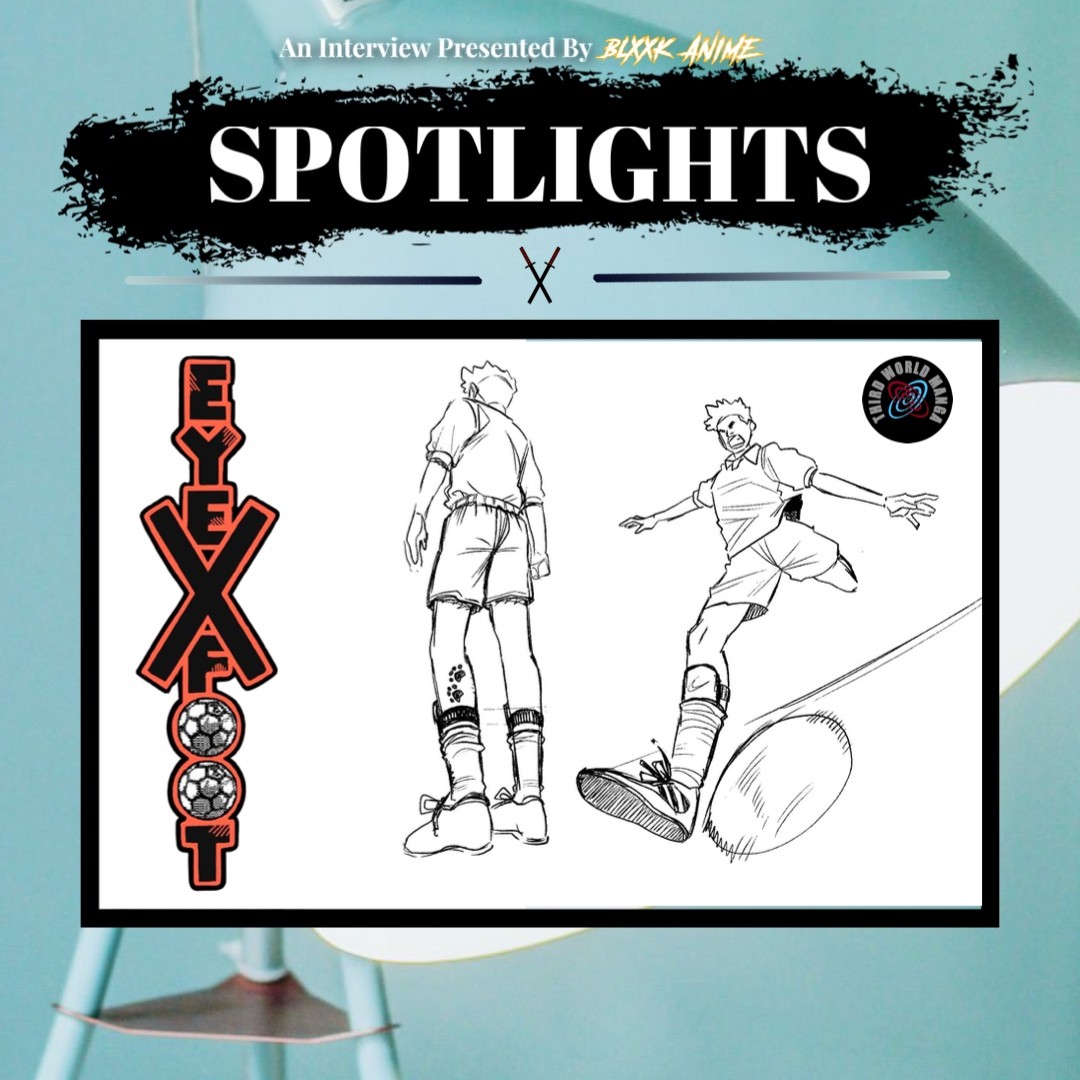The life of a mangaka (comic creator) can be difficult, especially if you are in the indie space and have mostly yourself to rely on. Gigi Murakami, American freelance illustrator and mangaka, is just that. As an indie mangaka, she must rely on herself for marketing, drawing, inking, storyboarding, writing, and more! Even with this list of daunting tasks, she’s been able to release phenomenal issues and one-shots of manga such as Resenter, Wash and Go, Tooth Fairy, and more. Her style mixes Japanese manga with a vintage American aesthetic, creating unique works that need to be read. OFF BLXXK got to sit down with her for a little over an hour and discuss her creative process, advice for other Black women who want to create manga, the creation of her unique style, and much more. To hear the full audio and get extra commentary and questions, you can listen to the audio on our affiliate podcast, Blxxk Anime.

Outside of creating manga, you also stream, you do some writing, still do commissions, and much more. So, how do you juggle all that along with your personal life?
Yeah, how do I juggle that? That's a good question. I have a planner. I am trying to tweak my social media stuff. (This is all related.) But I have a planner – a digital and analog planner. I also have a Notion workspace; a lot of my content stuff is up there. I have an assistant who helps me out with my admin and my content planning. So, if you are a part of the email newsletter gang, she writes all that stuff. I just kind of like give her the rundown and she does all of that.
I don't have much help doing art. I don't have an art assistant… To add a little bit more value to that answer, a quick rundown of what my schedule is: I do this full-time. This is my day job: creating manga, running my online store, going to conventions, and creating content to push my work.
On Mondays, I’m editing manga pages or editing videos for social media or YouTube. Sometimes, I pack orders. I try to pack them on Fridays and then ship them out so that they get to the customer on Monday. If it doesn't work out that way, I pack and ship on Monday.
On Tuesdays, I am working on manga pages, storyboards, and I'm studying Japanese… But Tuesdays and Wednesdays, both of those days look the same. Those are the days that I also stream.
Thursdays are my admin days… If I have to fix something on my website, if I have to update inventory… all of that stuff happens on Thursdays.
On Fridays, I try to film for social media. I would like to start batching more short-form videos… so ideally, the whole Friday is for filming, and during the filming, I'm either working on manga pages or an illustration… If I feel like I'm still working on a page, I'll just record me at my desk in different angles. Because I like film and I like filmmaking, I'll try to get interesting angles of me working at my desk.
If I have enough time and I feel like I did my job for the day, then I will stream a horror game on Twitch. But that stream is very back burner; if I am tired or if I don't have enough time to really enjoy the stream because I have a bunch of work that didn't get done for the week, I will cancel the game streams.
For Black people, we're used to being hustlers, getting our shit right, right? Being in the anime/manga community, especially when you’re a creator, it feels like that's something we have to do. There's not a lot of help out there for us or even teams and groups that are doing that kind of stuff. Also, as a Black person, we’ve probably both heard it: People say that Black people aren't into anime and manga. And for creators, it's taken a step further where it's like, we're not Japanese, so why are we creating anime and manga? So, my question is, what do you think about people who have that sentiment, especially for someone who has a Japanese family now?
I think those are people just bored on the internet, honestly. I don't pay no mind to them... Somebody just coming up to me and saying, “You're not a real manga artist.” …Nobody's ever said that to me to my face. And even if they did… I don't know you, you don't know me, and as far as I'm concerned, I have friends in the manga industry, and they support me. They are a hundred percent like, “Go, do it.” They don't call me a comic artist. They call me as I want to be addressed.
I feel a little bad for them, mostly because I feel maybe they feel like their space is being encroached on… I know how that feels for me, and I don't like that. I would hope that that person would get rid of their biases and take a minute to understand that manga is for everyone.
Unless that person is Japanese, somebody could easily say to them, “Why are you enjoying manga? You're not Japanese. That isn’t for you.” You know what I'm saying? So, I would just hope that person can open up their mind a little bit more to understand that.
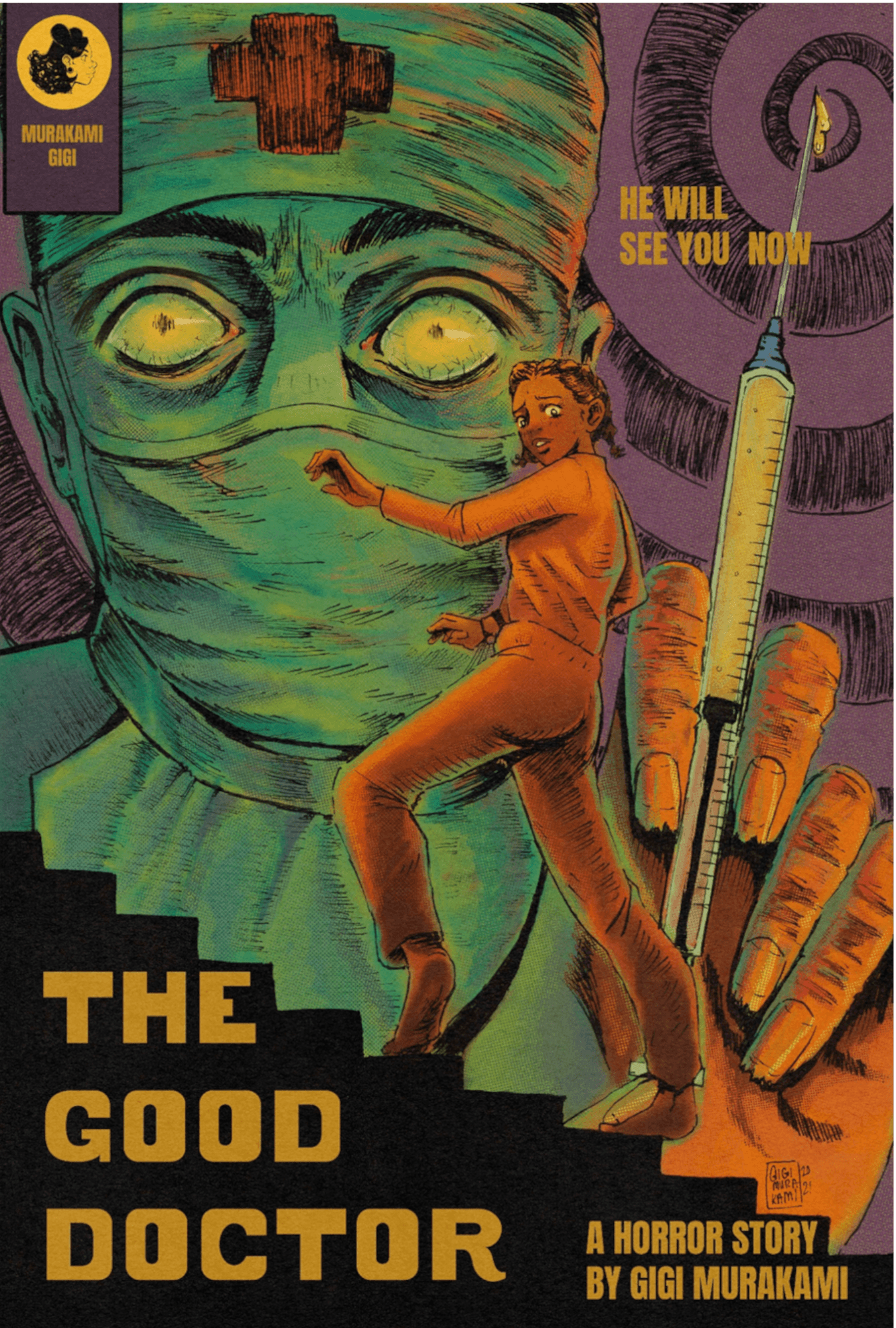
As someone who calls herself a mangaka instead of a comic artist, what do you think makes your style distinct from what we get from common American comics?
I think my style – it’s something I worked really hard to get a good handle on, and I studied a lot of manga during 2020… I think that my style takes a lot of shortcuts that are seen in manga, specifically.
This is all very subjective, right? When we think of manga or anime, we think of like, for noses, “two dot noses.” Or maybe just a line. (Usually, shoujo anime or manga typically has the line noses.) For Black features, our features are more predominant. They're softer, they're rounder – oftentimes they're bigger, right?
So, I tried to pay a lot of attention to how the manga artists I am inspired by and influenced by… what shorthands they use for their faces and for different types of faces and try to apply that specifically to Black faces because I feel like you never quite see Black faces very much in manga and anime. And when you do see it, it just feels like a little off, like something—something's off. It’s up in the air a lot of times.
I feel like because of those shortcuts that I've studied… I feel like I've – I wouldn't say I've perfected it, but I'm very close. I feel like people can recognize that my characters are Black and that it is in the essence of manga because of the shorthands that I've taken and kind of made my own. But those shorthands don't look like American comics, and that’s why… I decided to call myself a manga artist as opposed to a comic artist.
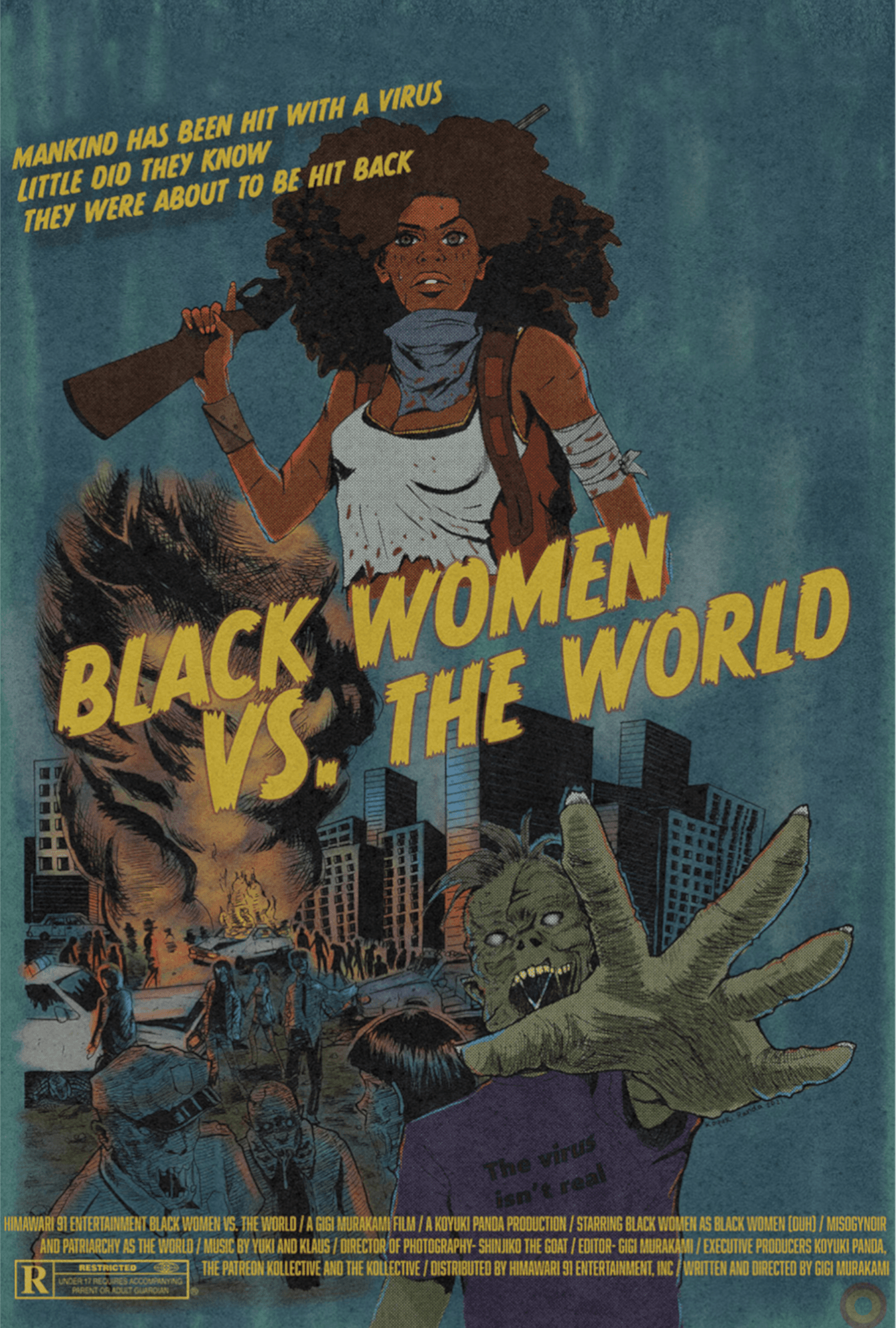
In your artist statement, you say that your work is “for people who want to engage the Black female experience in a novel way,” and that you “aim to create a different way of looking into the world of Black female-hood.” Do you believe with the works you've already created, and you will create, that you have achieved these affirmations?
I think I have. At least, for me, I feel satisfied in what I've put out, and there's still a lot more that I want to put out. As far as reception, I have felt like people have felt seen for sure. That statement is more so for the general public, but first and foremost, I always do this for Black femmes. I want Black femmes to be seen in my work.
And I have gotten that. I have absolutely been told that “I've had this experience,” or just a relatable experience, regardless of how horrific the situation is and the actual story. Even with some of my illustrations: There's this one illustration that I have called, “Don't touch me.” It's of a Black young woman with beaded hair. There are all these ghostly white arms and hands and stuff trying to grab her, and she just looks terrified, and she's facing away from the hands. (I mean, if you're Black, this is coming from an obvious experience.) So, there was a, uh, there was a young woman on Twitter who commented an experience about how a situation like that had actually happened to her. In the thread, she actually posted my sticker and it was like, “Well, anyway, here's some work from my favorite artists.” And I was like, “Oh…oh wow.” The post kind of went viral and I was like, “Oh shoot!” But I think I had wrote like, “When art imitates life,” But…it's a blending. It's when life imitates art…It's both.
To the general public, it's just like, “Oh, it's ghost hands.” But to the very well-trained eye, they understand what [it] is about. So I do feel like I have reached that, but I definitely feel like there's a lot more still to go with that. I do feel like there's a lot more to go until I reach the full capacity of what I've written in my artist statement.

I feel like as Black people and POCs we’ve been getting a lot of movies where we like to satirize and turn into metaphors and turn into stories our trauma. We create whole movies around one statement that Black people universally, especially in the United States, feel. I heard you in another interview with the Black Ramen Podcast where they asked you that question talking about that. And that's how we see comedy and things that other people see as horror, right? And so, with that, how do you blend that magic?
How do you get between those lines where it's like, “This is a real-life experience I've went through. I've made it into a horror, and now it's relatable”?
How to do that was hard. I've mentioned this just offhand and publicly before, but I never wanted to feel like I'm making fun of our pain, specifically with Black femmes and topics of beauty. I never wanted to feel like I'm poking fun, and if there is something that's going on, it's there for a reason.
But as far as like comedy… I mean, for comedy too, it's the same thing where it's lightly poking fun. Or it’s like a wink…
So the beauty thing… I'm only saying the beauty because, as a Black woman, I think it's so easy for Black women and femmes to feel the twinge of the pain of like, “You're making fun of me. This is beauty. You're calling me ugly.” So, that's why I keep going back to it – I just feel it's the easiest. But, while I don't want to make fun and, while I don't want to poke and traumatize, I do want to get the message that I'm trying to get across.
We talked a little about organization – a little bit about what you think about how people feel about manga, anime, and all that kind of stuff. And also how you have worked to achieve the goals that you set forward for yourself and how you've blended in yourself.
What advice would you have for Black women? Generally, what advice would you have for Black women who want to get into manga and anime? And then, specifically in the horror genre, what advice would you give them if they want to make their own thing?
For any Black women, uh, or even women just wanting to get into the manga space, I would say: First of all, follow your girl, especially the YouTube channel because I'm going to be putting some vlogs up soon. I got some camera equipment, so, you know, I'm going to be doing these vlogs soon. I think that'll be something that people will enjoy and get a lot of value from. In addition to that, just do it. I would say just go forth and do it. Try to get into a mindset and a headspace where you just get lost in your own creations. If it's not fun for you, it's not going to be fun for anybody that's reading.
I would also say that it’s a lot harder than it looks. My assistant, who is a femme, is also an aspiring manga creator, and we have these “creator sessions” in my Discord. (That's actually where I was just coming from; that’s where my community will discuss what creative things they've done the week prior and what they can do – what they're planning to do for the upcoming week.) And, she has been talking about her manga journey. She’s still new at it, and she's on the first chapter of her first manga, and she's like, “Oh boy, this is a lot. These pages is crazy. I only have 20 pages to do, and I'm struggling.” And I'm like, “Yeah, girl, welcome to the club. And as soon as you finish them 20 pages, you're not going to want to touch this shit no more. And then a few weeks gon’ pass, or a few days, and you gon be like, ‘Wow, I feel guilty. I need to get back up on it.’ And then you're going to get back up on it.”
There's going to be a little bit of friction, but the more that you do it, the easier that it gets. But, you honestly really just got to just do it. And make it a routine, make it fun. To quote Jordan Peele… he says, “Follow the fun.” Truly, truly follow the fun. Like if [your stories] are starting to drag… and they're starting to get boring, or even if the story that you're working on is not feeling fun, scrap it; save it for another day, and work on something new. Even if you intend to get back to it, you can always work on something new. So I would say just get started; play around with it. There are no rules to this, truly. If you need rules and you need structure, there are books out there. Shonen Jump has produced – Viz Media has produced – a bunch of books and resources on how to make manga.
There's Bakuman, you can read it, you can watch it. There are plenty of YouTube guides that are out there. We were talking about White Manga earlier. White Manga has made plenty of tutorials. There's absolutely nobody stopping you from doing what you want to do. So just dip your toe in, and then dip your foot in, and then dip your leg in, and then dip your whole body in, and just do it.
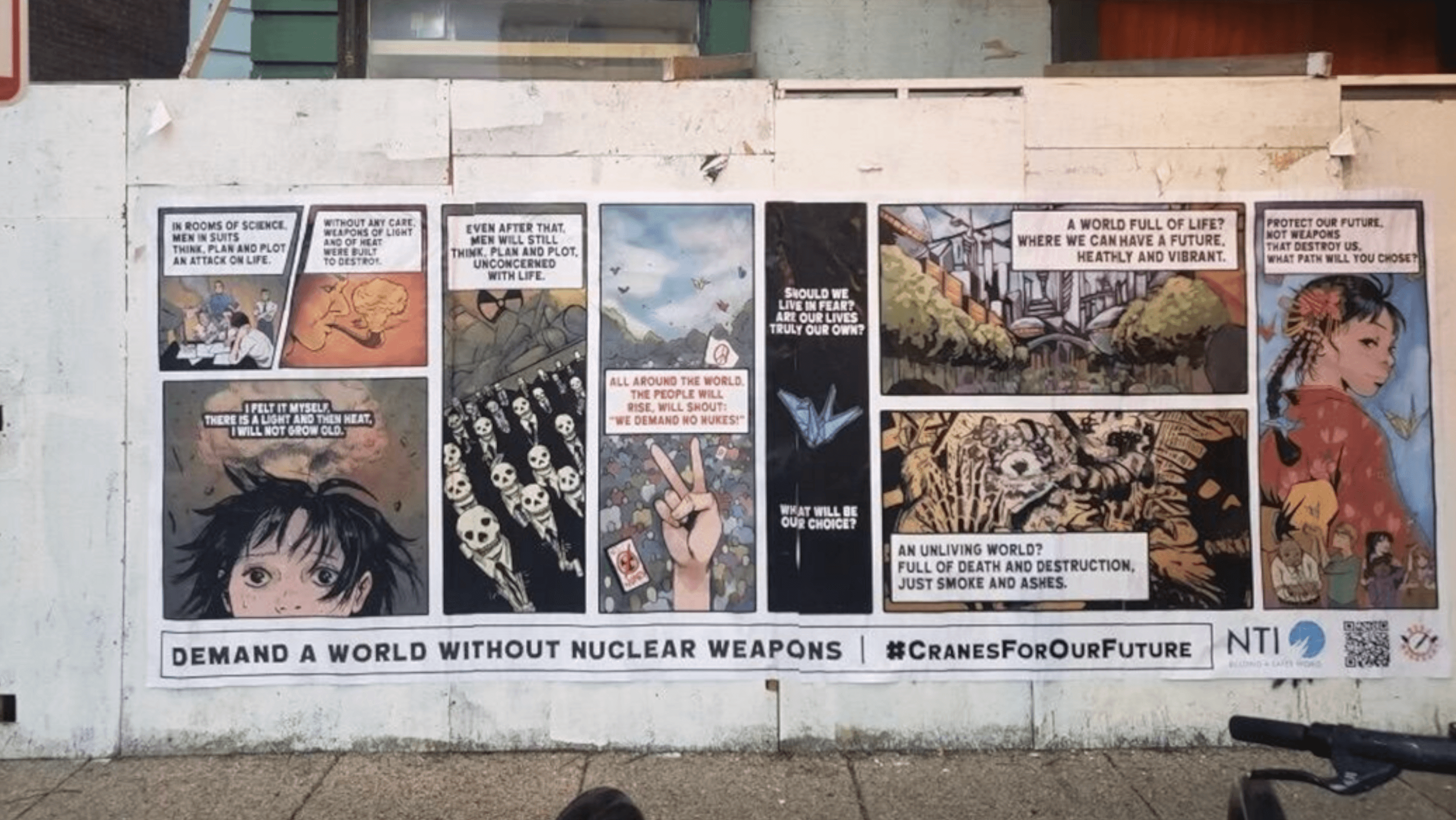
Recently, you created a beautiful mural for NTI (Nuclear Threat Initiative). (If you haven't seen it, go to her YouTube. [Gigi] has a vlog of her going and looking at it.) It's a beautiful mural in New York, for NTI's “Cranes for our Future” campaign, and it depicts the history and future of nuclear weapons. It talks about the danger of them and how bad they are, and how they've affected people's lives around the world – even right here in the United States. You did a great interview with them, which I think is definitely worth the read.
As someone who pulls from unique experiences of Black womanhood, if you were to create a mural detailing those experiences, what would be your influences for it?
If we're talking about like Black women and femmes… I just got to go back to the beauty thing… like, the relationship between Black women and femmes, between beauty, hair, like, self-esteem, skin color… It's so intertwined. I've never seen such issues as intertwined in a group of people before. I don't know, maybe that's saying too much, but for me and my experience, all of these issues and all of these complex and nuanced feelings are so intertwined within this one group of people. That would have to be, uh, that would have to be it for me. Maybe, like, some killer relaxers or something floating around, just spitting white goo at women. Something like that. I don't know. I'd probably – I'd definitely – take it to beauty and texturism and colorism… all these different “-isms” that a lot of Black women and femmes go through.
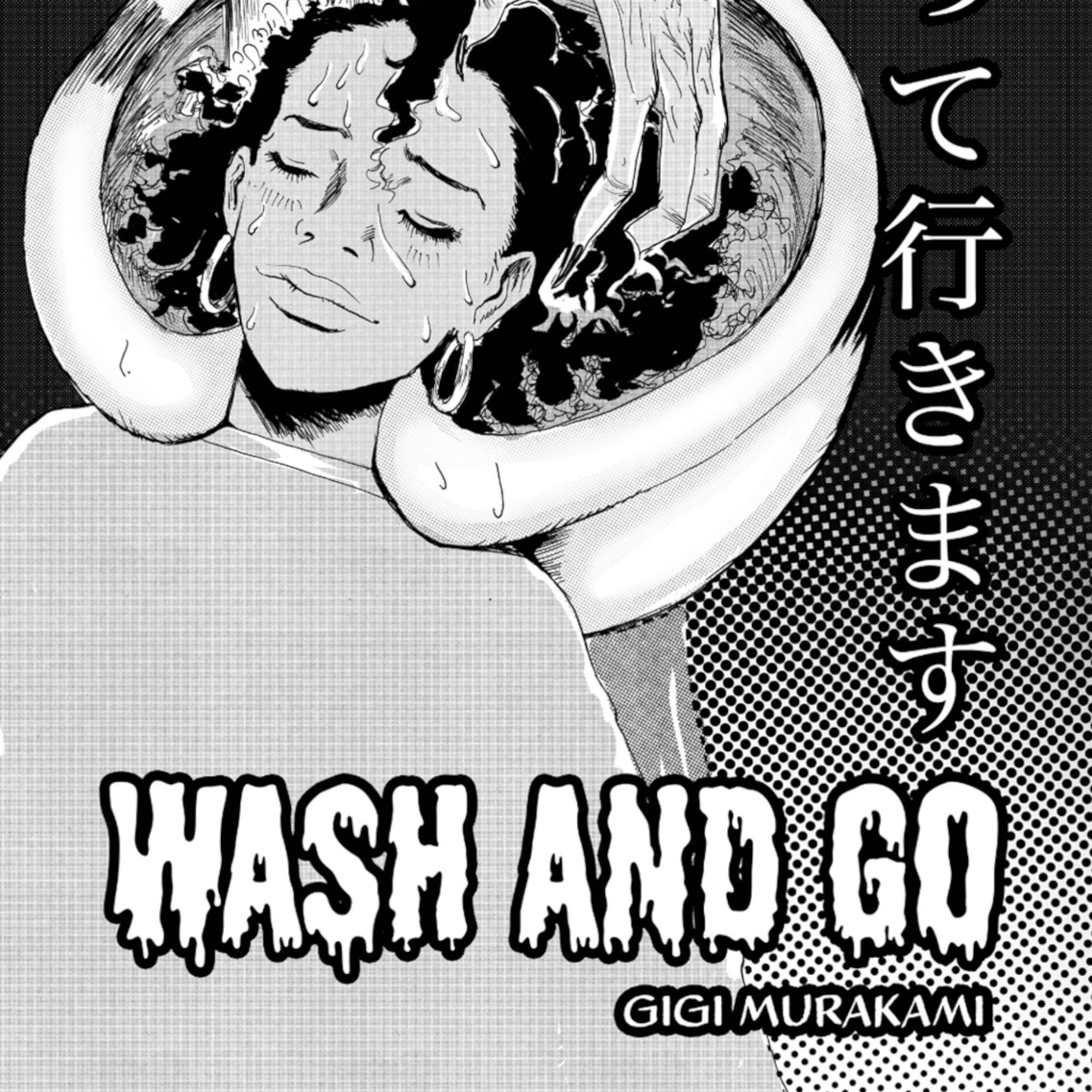
I'm not sure this is new, but your one shot, Wash and Go. Could you tell us about it a little bit?
So, Wash and Go is – it's not a personal experience that I've had, but it is based on personal feelings that I have. It is about a woman who goes to a hair salon to get her hair done, and in the middle of her session, she kind of awakens to this very unsettling situation that's in the hair salon.
When I was younger, I would go to the hair salon. (I have not been to a hair salon or a hairdresser in years. I do my hair myself.) But when I did go, I was not fond of sitting in those chairs with strangers and having my eyes closed for long periods of time. It just made me really uncomfortable, and somebody's touching my head. It's—I think it's like an erogenous zone where it's just hyper-relaxation; same with somebody touching your feet.
It's just a spot that is not very touched on, on the body, so there's an instant thing of relaxation. So, while I would feel comfortable, I would always be very uncomfortable because I have this stranger giving me this very pleasurable experience, but I don't know them, and I don't know all these people around me, and I don't know what they're doing while my eyes are closed.
So that always tripped me up a bit when I was younger. After I went natural, I was like, “Yeah, no. We don't have to do that anymore.”
Gigi Murakami: You can follow her on – all the links will be in the description for the podcast... And if you're reading this, then… I don't know what to say to people reading.
I mean, because you're reading, your links are embedded. So, just click her name somewhere in there…
We’ll be back next time with another interview. But yeah, appreciate you, Gigi, for hopping on here—great time.
Absolutely. Thank you for inviting me.
And so, until next time.
To hear the full interview with more questions and candid discussions, head over to Blxxk Anime. You can follow Gigi Murakami on X (formerly Twitter), Instagram, check out her website, catch one of her Twitch streams, and/or subscribe to her YouTube to learn more.



